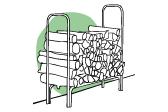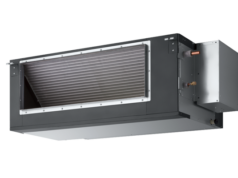
Solid fuel heaters run on coal, wood and other combustible fuels. Where you live can have a big effect on the cost of solid fuels.
Solid fuel refers to traditional types of combustible solid fuels like firewood and coal. While these fuel types are readily available (some of them actually grow on trees), not all of them are sustainable in the long term. Coal, for example, is a fossil fuel, and its use in the production of electricity is said to make it the largest contributor to the human-made increase in CO2 in the atmosphere. The use of coal in solid fuel heaters is, however, increasingly uncommon.
Solid fuels can produce a fantastic amount of heat when used in a fireplace or wood heater, and depending on the application, can be used to heat an entire home (particularly in smaller homes, or when coupled with hydronic systems or heat shifters).

Types of solid fuel
There are wide variety of solid fuels in common use for heating. Most are simply valued for the heat they give out when burned, but some also have other properties. Peat, for instance, is valued for the distinctive smell it gives off. Of the different type of solid fuels, wood is by far the most common, being found in fireplaces and braziers around the country.
Types of solid fuel:
- Wood
- Charcoal
- Peat
- Coal
- Hexamine fuel tablets
- Organic pellets
How efficient is it?
Solid fuels will definitely help you to keep your electricity bills down, but in terms of the impact they make on the environment, it really depends on the type of wood heater you choose to use. Traditional bricked-chimney varieties tend to be quite inefficient and create a lot of pollution, while modern insert type systems are far more fuel efficient and environmentally friendly.
Likewise, slow combustion heaters in general offer great efficiency improvements over older varieties of solid fuel heaters and fireplaces.
Other considerations
If you are considering a solid fuel heater, keep in mind that as well as paying for the fuel it burns, you will also need to perform some regular maintenance, which includes keeping chimneys and flues clean. Because they are prone to build-ups of resin and creosote (depending on the type of wood used), they occasionally need to be cleaned to prevent chimney fires or blockages. Likewise, you will also need to shovel the ash out of the fireplace or wood stove from time to time, and clean your fireplace once in a while.
|
Advantages
|
Disadvantages
|





